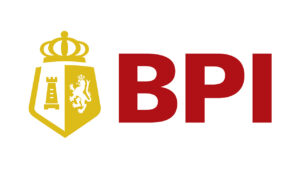BANK of the Philippine Islands (BPI) on Thursday kicked off its offering of dual-tenor dollar-denominated bonds from which it is looking to raise at least $300 million.
The bank is offering five- and 10-year Regulation S senior unsecured fixed-rate notes, it said in a disclosure to the stock exchange.
“The notes will be issued via one or more drawdowns under BPI’s $3-billion medium-term note program and will be listed on the Singapore Exchange Securities Trading Ltd. (SGX-ST). Pricing of the notes is expected within the day,” it said.
BPI will settle and list the bonds on the SGX-ST on April 7.
The five-year bonds are targeted to be priced at 130 basis points (bps) above the five-year US Treasury yield, while the initial price guidance for the 10-year notes is at 115 bps above the rate of the corresponding US Treasury benchmark.
Proceeds from the issuance will be used “for refinancing and general corporate purposes,” the bank said.
BPI earlier said it is looking to raise at least $300 million via the offer. The offering comes after the bank held a series of meetings with fixed income investors on Wednesday.
The bonds will be sold at a minimum investment amount of $200,000 and in denominations of $1,000 thereafter.
BPI Capital Corp. is the sole global coordinator for the issue. It is also part of the joint bookrunners for the transaction, along with BofA Securities, Inc., The Hongkong and Shanghai Banking Corp. Ltd., JPMorgan Chase & Co., and UBS AG.
BPI tapped SyCip Salazar Hernandez & Gatmaitan as its legal adviser as to Philippine law, while the joint bookrunners’ counsel is Romulo Mabanta Buenaventura Sayoc & de los Angeles.
Meanwhile, Milbank (Hong Kong) LLP is the legal adviser of the joint bookrunners for English law.
S&P Global Ratings on Wednesday assigned a “BBB+” long-term issue rating to the bond offer, which is in line with BPI’s issuer rating.
BPI last issued dollar bonds in March 2024, which marked its return to the offshore market after five years. The bank raised $400 million from an offering of senior unsecured five-year notes, higher than the initial $300-million plan, as tenders reached $1.3 billion.
The Regulation S bonds were also issued out of BPI’s medium-term note program and were priced at 5.25%. They were likewise listed on the SGX-ST.
BPI’s attributable net income rose by 20.04% to a record P62.05 billion last year from P51.69 billion in 2023 as increases in both its net interest and non-interest income led to double-digit revenue growth.
The bank’s shares went down by 30 centavos or 0.22% to close at P134.50 apiece on Thursday. — Aaron Michael C. Sy
















